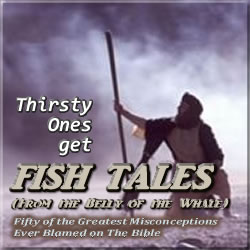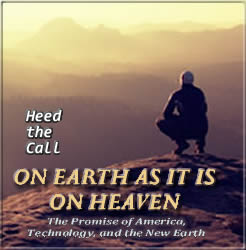Taking From the Rich
An Economic Ripple Effect
As was my professor’s habit, he eyed me for several thoughtful moments before breaking the silence: “Good to see you again, my boy; how have you been?”
“I’ve been well, Professor. How about you? You’re looking like your old self again; not like you did when we last spoke about your wife’s philanthropy.”
He smiled enthusiastically. “Oh, yes, well, fortunately for my sake, we’ve turned a bit of a corner in regard to that issue.”
“Really. How nice. Without sounding nosy, can you share what you did to make that happen?”
“Of course, I’d love to share that with you. And to tell you the truth, I’d be disappointed if you didn’t risk being ‘nosy,’ as you put it. It’s the mark of a great political scientist. What great movement or development in politics ever occurred as a result of apathy or indifference? What a failure I’d be if a student of mine lacked the tenacity to get to the bottom of every great question. And I don’t mind telling you, my boy, when I think of you I never think of you as being merely nosy. No, sir. I’m proud to say: You, my friend, are nosy with a purpose.” Amused with himself, he let out a tremendous laugh.
Laughing along with him, I smiled irresistibly at the thought that my professor was proud of me. Even with our obvious differences, he never made me feel inferior or stupid for holding fast to my own opinions or feelings, and for that reason, I would always admire him. That told me that even while he was a man of firm convictions, he never let that interfere with his ability to communicate respect and appreciation for the views of others, even when they were opposed to his own.
“So tell me, then,” I said, as our laughter subsided. “What did you do to turn the corner?”
“Why, of course, what would any good professor of political science do? I challenged my wife to a debate.”
“A debate?” I exclaimed. “With your wife?”
“Certainly.”
“What were the opposing arguments?”
“Well, my wife, naturally, advocated that the burden of philanthropy should fall primarily on the shoulders of the private sector. And for myself, I insisted that that burden should be shouldered by the state.”
“Now when you say the private sector, what was your wife looking to in that area?”
“Well, naturally, churches were her number one choice because of the biblical mandate to care for the impoverished and underprivileged.”
“Naturally,” I said, trying to not sound condescending.
“Add to that, community action groups, philanthropy societies, that sort of thing.”
“How do you think she did? I mean, in stating her case?”
Story Continues Below
To hear Kent, Zen Garcia and S. Douglas Woodward, as they discuss the 5,500-year chronology from Adam to Christ, from the perspective of The Septuagint Bible, to confirm the contents of Tales of Forever, CLICK BELOW.
Story Continues From Above
“Very well, actually. But unfortunately, her argument couldn’t hold a candle to my position.”
“Oh, really?”
“Yes, really,” he said, slyly.
“So what is your position? Certainly you can’t expect the federal government to shoulder the entire burden—not with the crushing debt that they’re already responsible for.”“Naturally,” the old man said, and pausing for dramatic effect, he eyed me with an impish grin.
“Well?” I asked with baited breath. “What’s your magic bullet?”
And after several anxious moments, as if hoping to add even more drama to his response: “Robin Hood,” was all he said.
“Excuse me?” I asked wide-eyed.
“Robin Hood—the greatest equalizer of history.” Seeing the confused look on my face, the old man leaned forward across the desk. “You have heard of Robin Hood, haven’t you?”
“Sure. Medieval English guy. Stole from the rich, gave to the poor. That guy?”
“One and the same,” he said, again pausing so I could further consider his intended meaning.
“Hmmm,” I muttered, considering his words, unsure of how I should respond.
“Don’t you see?” the old man went on with the energy and enthusiasm of a hippie activist. “The only way to empower the state, to enrich their coffers, to enable them to help others in need, is to once and for all do what politicians promise in every election cycle. But instead of letting them off the hook—again—demand that they make good on their promise. Demand to raise taxes on the rich; demand that the wealthy finally pay their fair share. Then and only then will we be able to benefit every American in this country—be they middle class or lower.”
“Hmmm,” I said again, and then I answered slowly, “And this is the argument that helped you win the debate with your wife?”
“That’s right,” he said proudly.
“And now you’re sleeping better at night?”
“Like a baby.”
“Hmmm,” I couldn’t help muttering again; and clearing my throat, I continued. “Well, Professor, while I do agree with you, in principle, I’m not clear as to how you’d actually make your plan a reality.”
“Ah, my wife said the same thing. Spoil sports. But I’m telling you: Where there’s a will, there is a way.”
And therein lay the irony of the old man’s plan. On the surface, the idea certainly seemed agreeable—in principle, that is. However, in reality, I couldn’t help thinking that there might just be a hidden flaw, to be revealed upon further investigation.
“To compel someone to contribute money for the promotion of opinions for which they disbelieve is sinful and tyrannical.”
Thomas Jefferson






